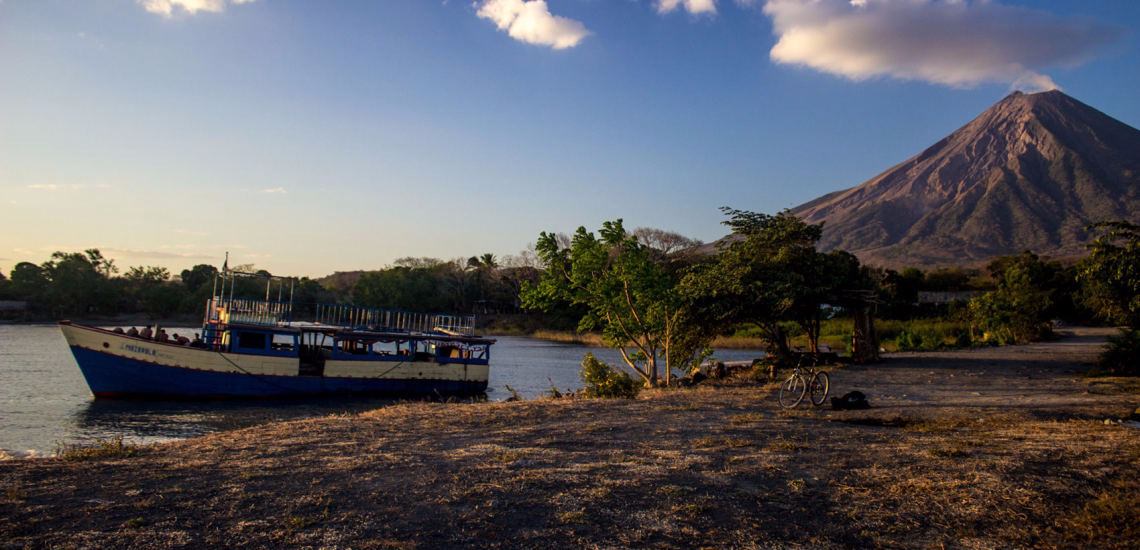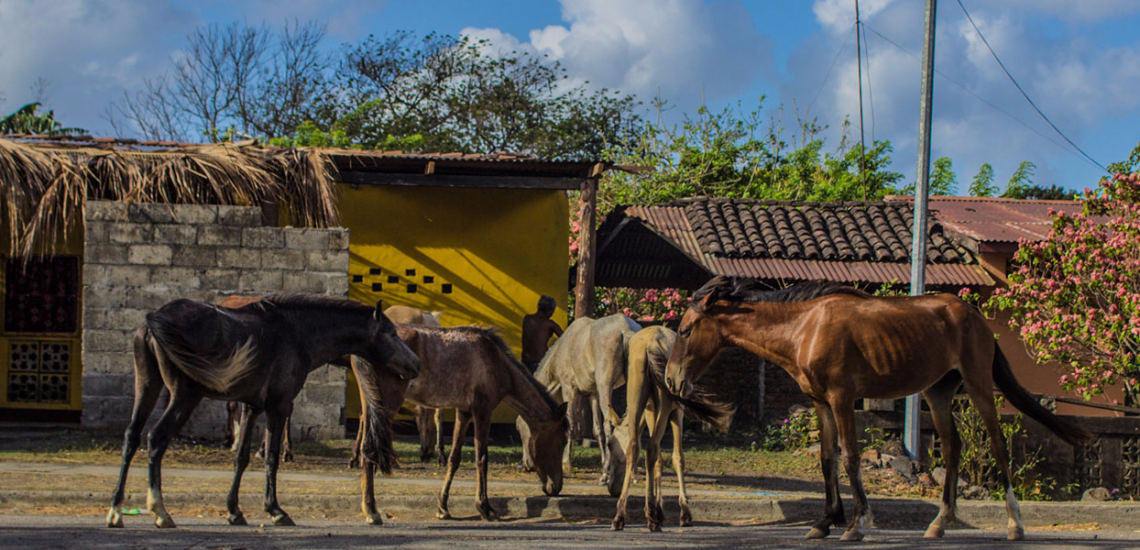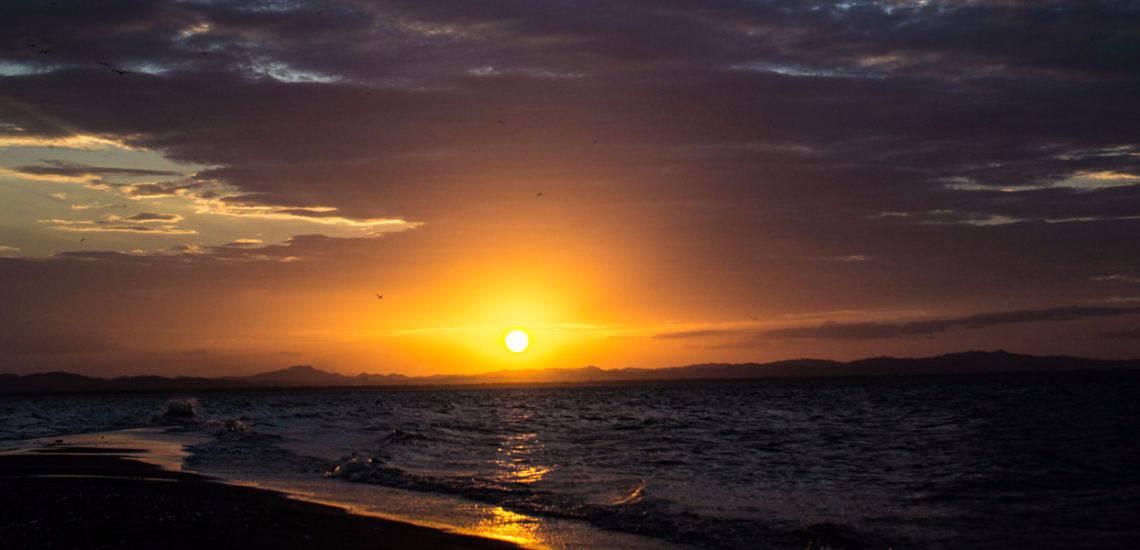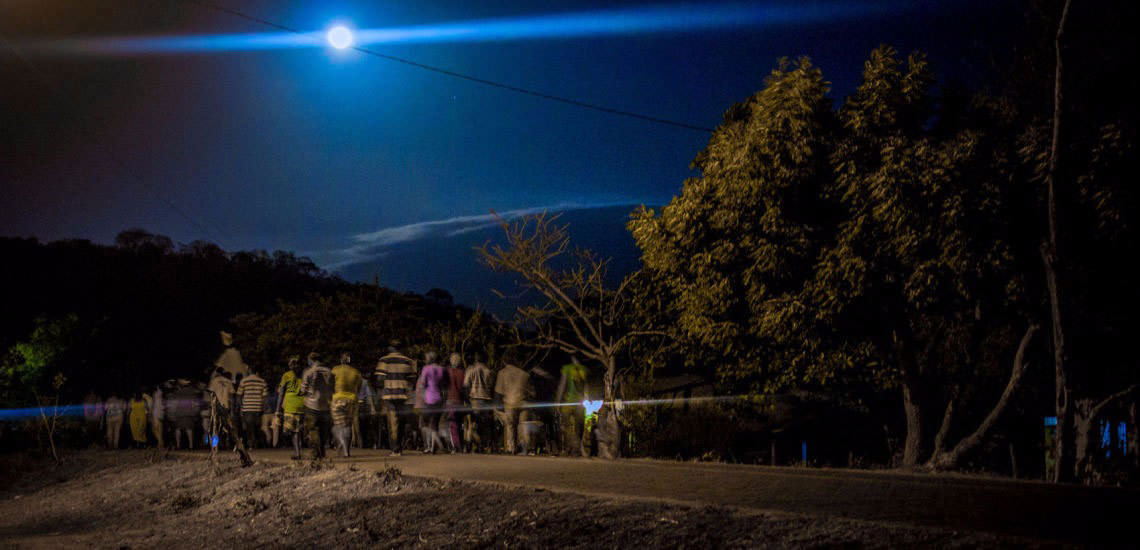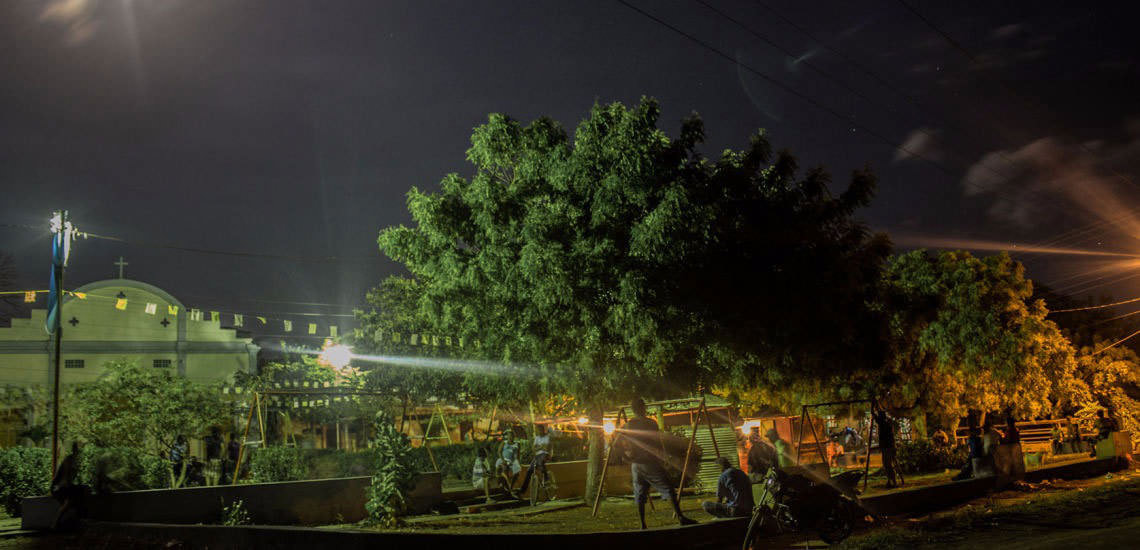The ‘Gunya
When I was little and forced to be religious, I confessed, “Sometimes I say bad words in my head.” “God hears everything, child,” Father Keith said. Three Hail Marys and one Our Father later, I promised I’d never swear again. So when the Nicaraguan church choir began singing at 9 p.m., I was sure God could hear them. When they brought out a megaphone at midnight, apparently they were sure he could not.
The nighttime celebrations for Saint Joseph’s Day on my usually silent street lasted until two in the morning. When the marching band banged down the street at four and the firecrackers broke with the dawn, from behind the two orange plastic plugs in my ears, I could only think one word: “Fuck.”
Mosquito nets aren’t soundproof. They aren’t bugproof, either. Nor are they the princess tent of your youth. While I’m not religious, I did ask God to, “Please, please tell them you’re listening. Ask them to shut up.”
If I sound calloused, it’s because I was. Any other day I would have gathered my camera and knelt down in that church waiting for candlelight to silhouette a pair of praying hands. Starlight for streetlight, I would have dragged my shutter to convey the midnight movement of people gathered on the dusty streets. I would have caught contradictions of faith as men gathered over a bottle of rum under a cross, while teenage boys sat on the church steps in the dark, telling any woman who passed by that they loved her.
Instead, as the drums and tubas and horns woke the cows, from inside a mosquito net, my head was threatening to explode, my bed sheet felt like razors and I didn’t have the strength to sit up.
Chikungunya sounds more like a curry than a virus. It was a gift from a hungry daytime mosquito that feasted on someone else and then took a bite out of me. Until that day, tropical disease was just a passing warning from a travel doctor, a caution at the border, customs form boxes I ticked “no” without a second thought. Unlike its cousins—dengue, malaria or yellow fever—chikungunya is rarely fatal and only transmittable via mosquito when it bites an infected person with a fever, but the virus is relatively new and there’s not much doctors can do.
Before I became sick, I was in the best shape of my life. I’d spent a month immersed in yoga teacher training.
When I contracted chikungunya, I was living on Ometepe, an island made from two volcanoes in the heart of Lake Nicaragua. A few months before, I left my corporate job and my shoebox of an apartment in Toronto to scratch my itchy, wandering feet in the name of spending a year doing only the things I love: getting my yoga teacher certification, writing a book, transitioning to freelance writing and taking a stab at travel writing.
All was going swimmingly until it wasn’t. Before I became sick, I was in the best shape of my life. I’d spent a month immersed in yoga teacher training. That means four hours of power vinyasa yoga a day, a clean diet, oming and chanting with the best of ‘em. After it finished, I ventured off onto my own looking for a place to settle.
When I arrived on Ometepe, I only meant to stay for a weekend. It’s the type of place where you’ll find women scrubbing their laundry on washboards in the lake, where internet cafés, so few and far between, are the only source of contact with the outside world and where children cast nets with their fathers in the morning and go to school in the afternoon smelling of fresh fish. The sky is always blue, the shades of green endless.
I fell into the island’s plodding pace quickly, like Mark Twain did over a century before me, who once described the volcanoes as being “so isolated from the world and its turmoil—so tranquil, so dreamy, so steeped in slumber and eternal repose.” Not much had changed. At the feet of those two volcanoes, I’d wake up early to do yoga on the front porch; I’d write all day, pitching articles about what I’d seen and imagining fictional lives that weren’t mine. I’d always spend an hour at the beach, always take a minute for the sunset. I’d made friends with my neighbours, kind-hearted locals. We traded English lessons for tacos, computer lessons for company. In the part of Ometepe where I was staying, I was the only Western expat around, save for a few travellers passing by. But even though I loved it there, I didn’t mean to stay. Every day I said I’d leave. But then a friend came for a week to visit. Then an old man and his grandsons promised to take me up the volcano. Then the ferry wasn’t working. Then I lost track of time. And then, finally, the chikungunya got me and forced my wandering feet to stay still.
The morning before the chikungunya hit started like any other. I filled a tin kettle with tap water, set it to boil and poured myself a cup of coffee. The day was hot, though the sun was just rising, and I walked out on the front porch. There was a patch of dirt where a lawn should be, but I’d been told the dust still required watering. It was a futile pursuit; the walls of my home didn’t reach the roof so when the wind picked up even just a little, the breeze showered everything it touched with a thin veil of earth.
Midway through the day’s watering, I noticed my ankles hurt. When I scrubbed laundry on the washboard out back, my wrists felt like they’d come loose. It wasn’t even midmorning, but my bones were so heavy, I took a break in my hammock.
For someone who never naps, I fell asleep easily. I woke up when the faint breeze bit my skin like a burn and my eyes felt like I’d stared into the sun. It wasn’t the Nicaraguan heat that scalded me when I placed my hand on my neck, it was the pressure-cooker of a fever, which started behind my eyes and reached down to my toes. In its throes, I moved to my bed and tried to sleep.
By 4 p.m., I couldn’t walk. By 5 p.m., I thought I found genius—delirium had clearly set in. In my head, the story I was writing wrote itself. I reached for a pencil and dropped it. I didn’t have the strength to pull my laptop screen up; no matter, my thoughts skipped so fast, I’d lost it. By 8 p.m., even though it was 30 degrees, my teeth were chattering. The chills shook my whole body. Then at 9 p.m., the church celebrations began.
Fever. Joint pain. Fatigue. Rash. Headache. Nausea. Vomiting. Muscle pain—try to make a song out of that.
The symptoms sound so basic on paper. But at its height, the ache felt as if I was a plank of wood snapping. The eye pressure, as if someone put a vacuum to their sockets. The weakness, as if I was ten cups of rum in. But perhaps the best way to express it comes from its translation. In African Makonde, chikungunya translates to “bent over in pain.”
In less than a day, I went from backbends and arm balances, volcano climbs and daily jungle runs to an arthritic tin man in need of oiling.
As luck would have it, a friend from my yoga course was a doctor. As soon as I was able, I called her. She said that so long as I kept my fever under control and stayed hydrated, there was no need to go to the hospital. Give it a week; I should feel a little bit normal again, though residual pain in the joints might stay for weeks or months.
“Take care,” she told me. “And Lena, be gentle with yourself. ”
But instead, the swear words in my head started getting louder. Along with joint pain, eye pressure and a rash, the ‘gunya, as I so fondly call it now, also bestows upon you a case of the deep blues. Like any human, I’ve felt sadness, but I’d never felt a low like this.
The swear words in my head started getting louder. Like any human, I’ve felt sadness, but I’d never felt a low like this.
The sunshine, the adventure and even the volcanoes were lost on me. The beach left me reeling in loneliness. The night sky, filled with more stars than I could draw, choked me of any resilience I’d mustered during the day. Inside my brain, thoughts whizzed and whirled like the wind that dusted my floors, and everything I was came into question. I couldn’t think clearly therefore I couldn’t write—I was no longer a writer. I couldn’t move easily therefore I couldn’t do yoga—I was no longer a yogi. I was homesick and I wanted to leave—I wasn’t a traveller. All of the banal associations that I had used to make up my identity were called into question. I’d come there to write, to explore, to get curious and to immerse myself in something softer and gentler than the fast paced world I’d left, and instead I found myself in a prison of my own mind, trapped in a body that felt like lead.
Like it does in all small communities, word spread quickly that the new girl was sick. Patty, whom I’d only met once before, showed up at my door. She visited me daily, ensuring that I took rest, but not before I ate her hot soup and took a sip of rum. Then Dania started coming by. She owned a small restaurant down the road and brought me Tylenol, water and her puppy for support. Old Maria, who sold coffee by the ferry and tacos by the church, gave up her seat when I tried to get to the pharmacy on an overflowing chicken bus.
So far from home, I was cared for. (Though rum always helps.)
These beautiful strangers helped me. It seemed everyone knew someone who’d been sick. For a little while, I’d felt so alone, and then I felt myself surrounded. So far from home, I was cared for. (Though rum always helps.) A little community formed around me, and while I didn’t feel physically better, I did start feeling
again.
Just like my friend said, the fever broke after five days and once it did, despite slight discomfort and swelling, I could make the short walk to the internet café. Slowly, again, the volcanoes began to draw my eye. I forced myself to the pier to take photos at sunset. I visited Dania and traded English lessons for tacos. I started doing gentle yoga on my porch. I walked down to the harbour for sunset. I began the slow process of undefining myself, and, in fact, forgetting myself. Detached from the things by which I constructed my identity, I was forced to invest my energy into the things, the people, the views around me.
When I returned to Canada a month later, the change in temperature immediately fired up my joints. For a while, I walked with a limp. Even today, my wrists flare in bad weather and ache in the cold. Sometimes my brain fog is so thick I could jar it. My road to recovery is ongoing and the doctors I’ve seen have no concrete answers. “Wait it out.” “Take your vitamins.” “Get lots of sleep.” They say I could have joint pain for years, but I will move through it.
While chikungunya was a giant maelstrom of pain and emotional tailspins, I’ll remember my time on Ometepe for what it was. Living in a developing country has its risks, but staying put back home has others. While the ‘gunya made me question my identity, it taught me the power of that thick chunk of matter in my head. It taught me about the strength that can be found in loneliness, the benevolence that can be found in strangers, so long as you’re open to them.
I think back now to that lesson I learned so long ago: don’t swear in your head. They really should say, “Be gentle with yourself,” instead.
Story images from Lena Desmond.

